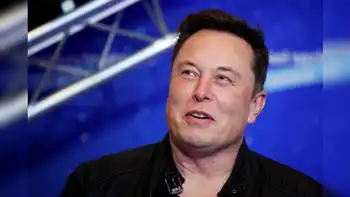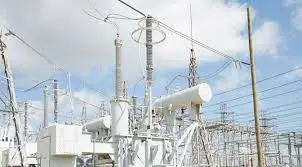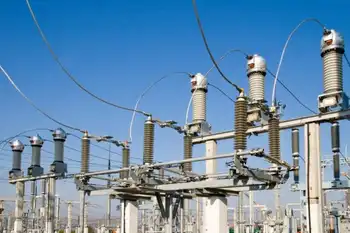KEPCO looks to be tops in Asia
By The Korea Times
Arc Flash Training - CSA Z462 Electrical Safety
Our customized live online or in‑person group training can be delivered to your staff at your location.

- Live Online
- 6 hours Instructor-led
- Group Training Available
The company, founded as the first electric power company on the Korean Peninsula with the name ''Hansung Electric Company'' in 1898, targets annual overseas sales of 3.8 trillion won ($4 billion) by the year 2015 with mid- and long-term strategies for businesses at home and abroad.
At a time when domestic demand is slowing down, KEPCO's global management has already been making tangible achievements since last year, when Lee Won-gul, former vice minister of commerce, industry and energy, joined the firm as the president.
KEPCO has stepped up efforts to expand its electricity and natural resources businesses around the world from China, Mongolia, Nepal, Indonesia and the Philippines to Azerbaijan and Nigeria as well as Russia, Canada and the United States.
While it has long been indulged purely in the electric power business, the company has also been exerting efforts to diversify its businesses into such areas as the overseas resources development projects.
Last December, for example, the company took a 34-percent stake in Gemeng International Energy, a $1.34 billion Chinese joint venture which will develop coal mines and also buy and build power plants over the next five decades.
Lee himself attended the ceremony to mark the launch of the joint venture in Shanxi Province along with Chinese leaders including Zhang Baoshun, the communist party leader, and Meng Xuenong, governor of the Chinese province.
KEPCO plans to acquire 15 power plants, build nine power plants and develop nine coal mines in the province as part of the joint venture project, according to a spokesman for the state-run company.
In November, Lee flew to Jakarta to meet with Indonesian Vice President Jusuf Kalla and discuss a KEPCO-led South Korean consortium's participation in the Southeast Asian country's power generation projects.
Lee expressed the consortium's intention to provide high-quality technologies to help Indonesia address the severe lack of electricity and the state-run firm's preparedness to invest in various projects in the country.
KEPCO has been leading a consortium, which comprises several private enterprises, to win bids for electric power generation and natural resources development projects in such regions as Sumatra, Kalimantan and Java.
Earlier in that month, the firm also signed a memorandum of understanding (MOU) with Nuansa, an Indonesian firm, for cooperation in the development of natural resources in Kalimantan Province.
KEPCO has also been expanding cooperation with advanced electricity powerhouses such as Russia and the U.S. In August, Lee visited San Francisco to sign an MOU between his company and General Electric (GE) for overseas electricity projects.
Before his departure, Lee unveiled his company's ambition to take aggressive steps in the coming years to advance into the American market, based on its experience in China, Southeast Asia and Africa.
KEPCO's accumulated gains through overseas businesses surpassed 1 trillion won in 2006, with the net profit about 500 billion won, since it first began operating in foreign countries in September 2002.
Owing to its aggressive approach and improved image abroad, the company has also received orders for overseas power distribution facilities worth $15 million over the past five years.
Last November, KEPCO officials held a ceremony to declare the ambitious vision under the title ''2015 Asia's Best Value Developer in Energy Service'' at its headquarters in Samseong-dong, southern Seoul.
''We intend to provide best services not only in the electrical power field but in other energy-related areas such as natural resources development to contribute to global value development,'' Senior Vice President of Overseas Business Division Kim Jin-sik said.
A company spokesman added that the new vision contains the firm's determination to become the top Asian electric power company and secure an international status as a firm that could rival such prominent players as Electricite de France (EDF).
In a concrete blueprint, KEPCO has drawn up a master plan for its businesses abroad, under which the firm aims to see annual overseas sales of 3.8 trillion won and an overseas power generation capacity of 10,000MW.
''Currently, the company's overseas sales stand at around 200 billion won, or about 1 percent of the total sales at home and abroad,'' a company spokesman said. ''By 2015, the figure will rise to 3.8 trillion won, or about 8.3 percent of the total sales.''
Overseas businesses of the state-owned company have so far been largely focused on thermal power generation and consulting for power transmission and distribution for developing and underdeveloped countries.
But the firm now intends to expand and diversify its businesses into such areas, among others, as mergers and acquisitions (M&As) and clean development mechanism (CDM) emissions trading.
''As for marketing, we will also try to secure such countries as China, Russia and the U.S. as strategic points in accordance with business portfolios to increase our foreign investment to 10 trillion won,'' a company official said.
He added that the company would also put more efforts for manpower by setting up its ''strategic human resources management'' through recruitment of talented people and bold global outsourcing in the future.











